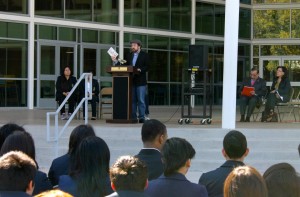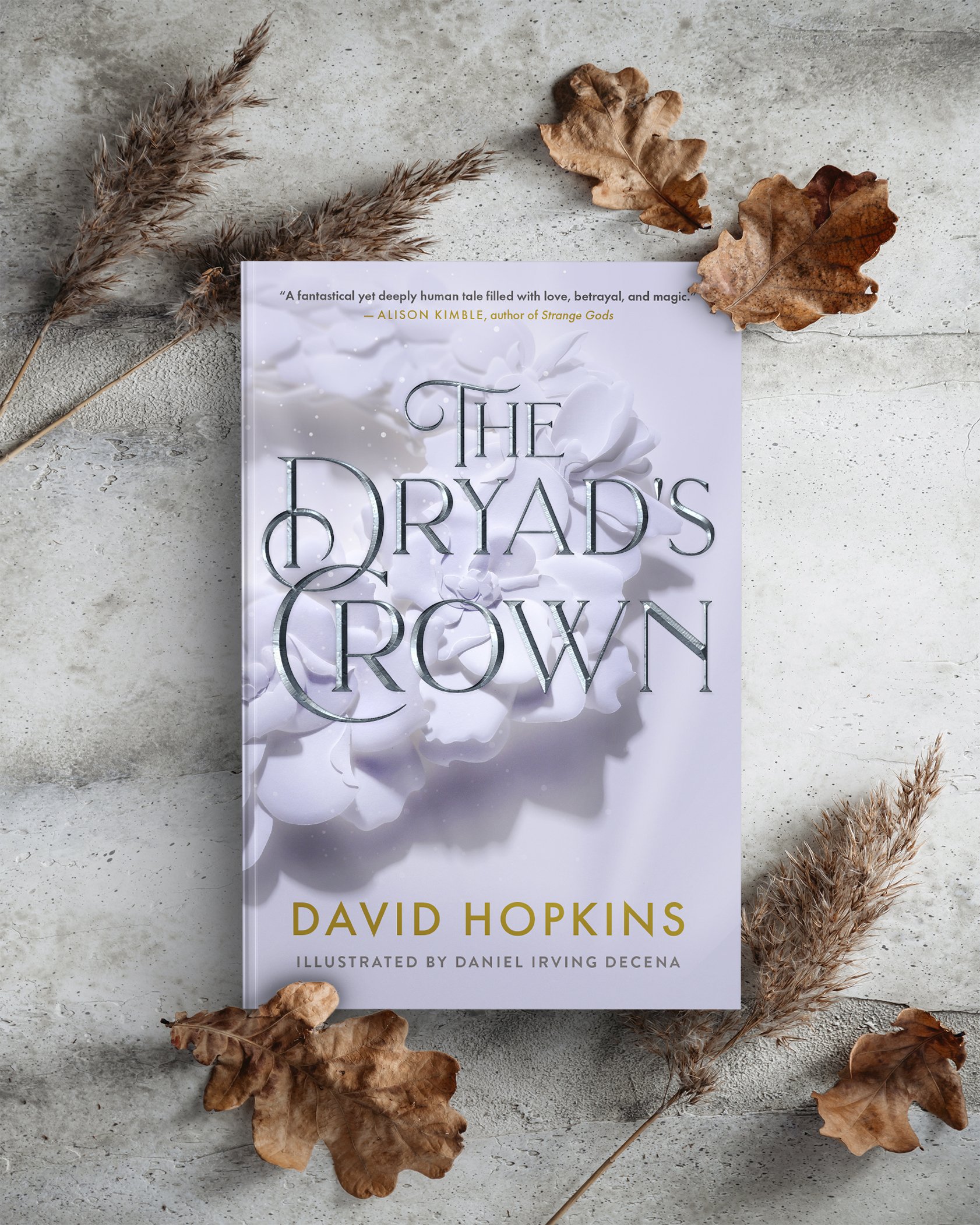 Today, we distributed copies of Fahrenheit 451 to the ninth and tenth graders at Trinidad Garza Early College High School. It was a great event. Mountain View College President Felix Zamora gave a few opening remarks, as well as Trini Garza principal Dr. Janice Lombardi. Dallas City Council member Delia Jasso was our keynote speaker. Best of all, the school's step team performed a routine based on the book.
When in doubt: step team. They make everything more fun.
Today, we distributed copies of Fahrenheit 451 to the ninth and tenth graders at Trinidad Garza Early College High School. It was a great event. Mountain View College President Felix Zamora gave a few opening remarks, as well as Trini Garza principal Dr. Janice Lombardi. Dallas City Council member Delia Jasso was our keynote speaker. Best of all, the school's step team performed a routine based on the book.
When in doubt: step team. They make everything more fun.
I also had the opportunity to say a few words. I talked about my love of reading. And to my knowledge, it's the first time I've spoken publicly about my dyslexia. Certainly, it's the first time I've mentioned it on this blog.
Here's what I said, more or less:
First, I want to thank Dr. Lombardi for organizing this event with us. You’re a great school. You should be proud of your education here.
My name is David Hopkins. I taught English and Creative Writing at Martin High School for twelve years, and now I write for a living. I’m a member of D Academy, the group behind the Big Read Dallas. Our hope is that you would join us and the rest of the city in reading Fahrenheit 451. That’s why we’re here. We’re counting on you, the ninth and tenth graders of Dallas ISD, to lead this charge. We’re going to give every single one of you a copy of the book. Once you get them, you'll notice The Big Read Dallas logo and a note to you on the inside. This is a special edition of the book. And it's yours.
We’ve planned a lot of events for people to attend in April. We have a movie screening of the book; we’ve got a censorship debate; a sci-fi panel; events at the Perot Museum; and a Read In at Klyde Warren Park. Go to bigreaddallas.org to see all our events.
I’m only going to speak for a few minutes. I’m anxious to see the step team perform—and I never like getting in the way of awesome, talented people. But I do want to share something important with you.
The purpose of the Big Read isn’t just to get people to read; the Big Read wants people to enjoy reading, to put it in the center of their daily experience, to help shape their outlook on the world, to understand that reading is a uniquely enjoyable experience—and not just something that Mr. Lopez makes you do for homework.
It’s not enough to be able to read. To truly experience literature, you have to love it.
It was hard for me. I have dyslexia. It’s a learning disability that affects phonological awareness and decoding, it’s an inability to associate letter symbols with sounds—simply, your brain makes reading harder than it should be. I can look at a word, and I know what the word means, but something in my brain says it’s not really that word. As a kid, I had every kind of tutoring imaginable. I was held back in first grade—making me the oldest kid in my class. I thought I was an idiot.
The breakthrough came when my grandparents bought me a stack of comic books. The word balloons grouped the sentences in a way that made reading more digestible. The images reinforced the words, which sped up my comprehension. And I loved the stories.
From there, in junior high, I started reading Stephen King novels—terrifying, gruesome horror stories that I knew my parents wouldn’t approve of, which was part of the fun. In two years, I read 16 of his novels.
In high school, I met some other book lovers. They shared with me their favorite authors—Kurt Vonnegut, Ray Bradbury, Franz Kafka, J.D. Salinger, Douglas Adams. We’d talk about the books we loved. “You haven’t read Hitchhikers Guide to the Galaxy? Oh man, you have to read Hitchhikers Guide.”
And like that, I became a reader for life.
Reading and writing still take me a little longer than it should. (Yes, I notice the irony that I have dyslexia, and I’m reading these words to you. Hey, I practiced.) Even to this day, if I mean to write the word “want,” there’s a 1 in 3 chance I’ll write “what” or vice versa. So, let’s think about this for a second. Kid has dyslexia and he grows up to get a job where he spends all day looking at words.
What convinced me to not give up was when I found out that Pulitzer Prize winning author Richard Ford also had dyslexia. He saw it as a blessing, in that it forced him to approach books at a slow and thoughtful pace. If he could do it, I had to at least give it a try.
I love reading and writing too much to give up on it.
Fahrenheit 451 is about not giving up in the face of overwhelming resistance—it’s about a society that gave up on reading, that institutionalized their ignorance, and then a radical group that rediscovered the books their society had rejected. It’s a story about censorship and about the pursuit of knowledge, wisdom, and the courage to be different.
You love to read. Awesome. Share your love with others. Talk about the books you like. The same way you’d talk about a movie you just saw. If you don’t care for reading, I would encourage you to give it a second chance. Maybe you haven’t found that book yet. And maybe it’s this book.
I promise when you find that book—it’ll open up everything to you, every world, every opportunity. It’s yours. Thank you.
photo by Krista Nightengale
